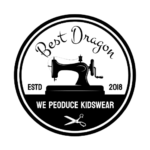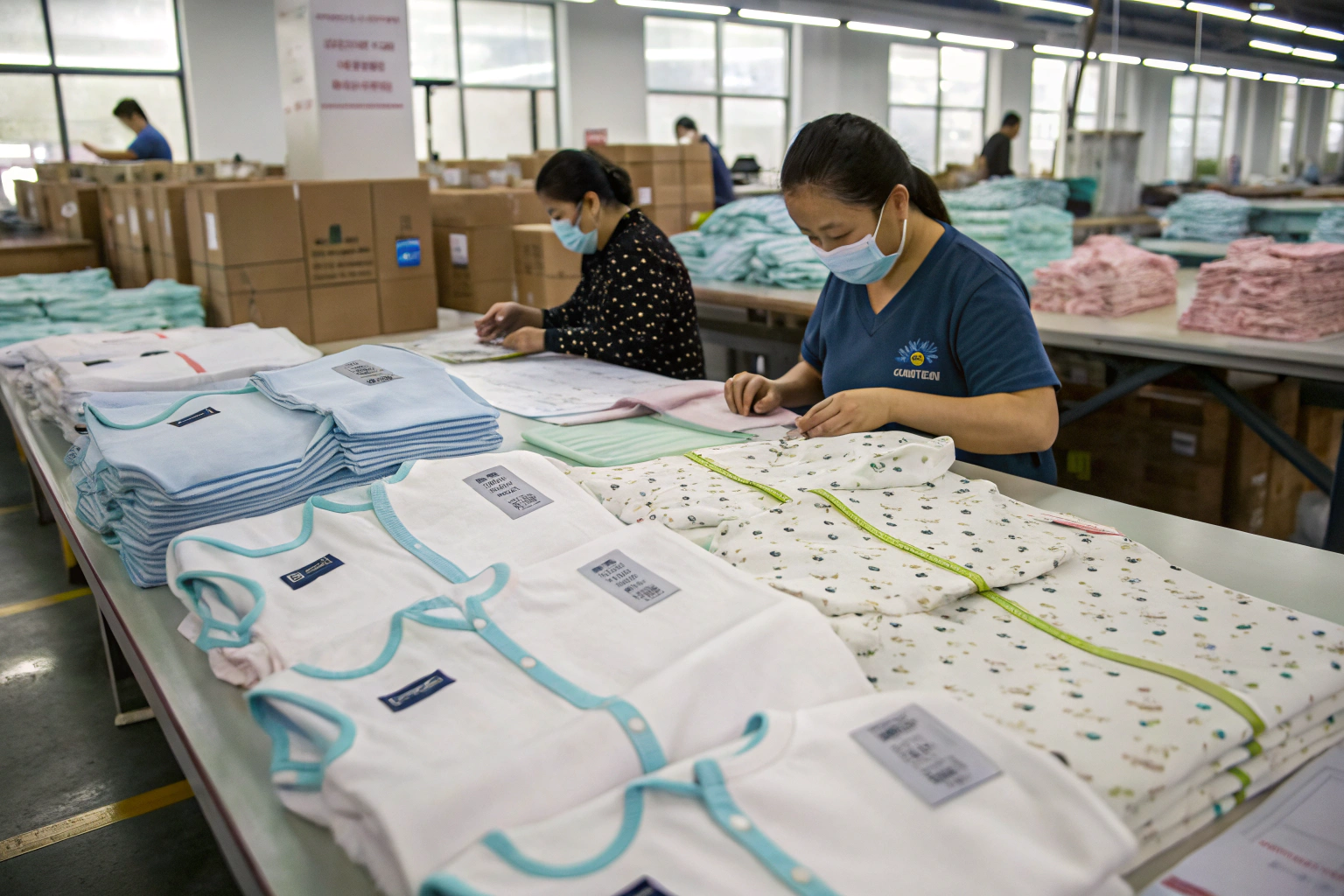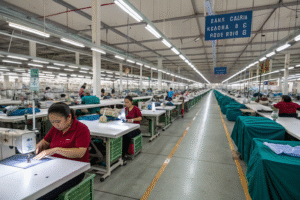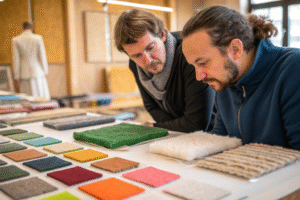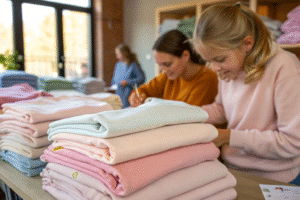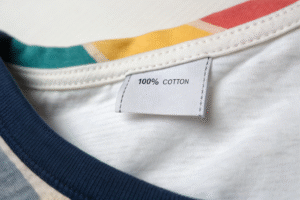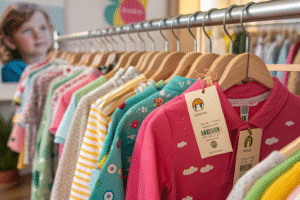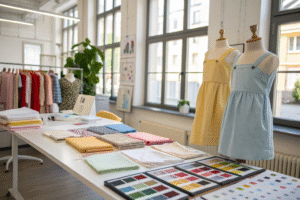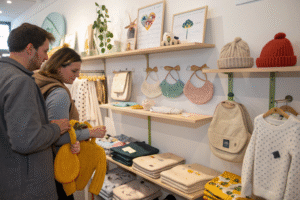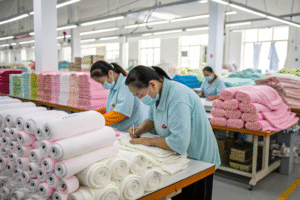If you operate a retail chain or baby boutique, offering private label infant apparel can boost your margins, control your brand message, and strengthen customer loyalty. But only if you partner with the right manufacturer.
Private label baby clothing allows you to customize designs, labels, packaging, and sizing under your own brand—without managing production logistics yourself.
As a manufacturer with years of experience producing babywear for U.S. and European retailers, I’ve helped many stores launch and scale private label lines. Here’s what you need to know before taking the leap.
What Is Private Label Baby Clothing?
Retailers often confuse private labeling with wholesale buying. But there’s a key difference: in private labeling, the products carry your brand, not the supplier’s. That means full control over logo, sizing, trims, and even fabric choices.
Private label babywear lets you sell exclusive designs under your name while leaving the manufacturing to a trusted partner.
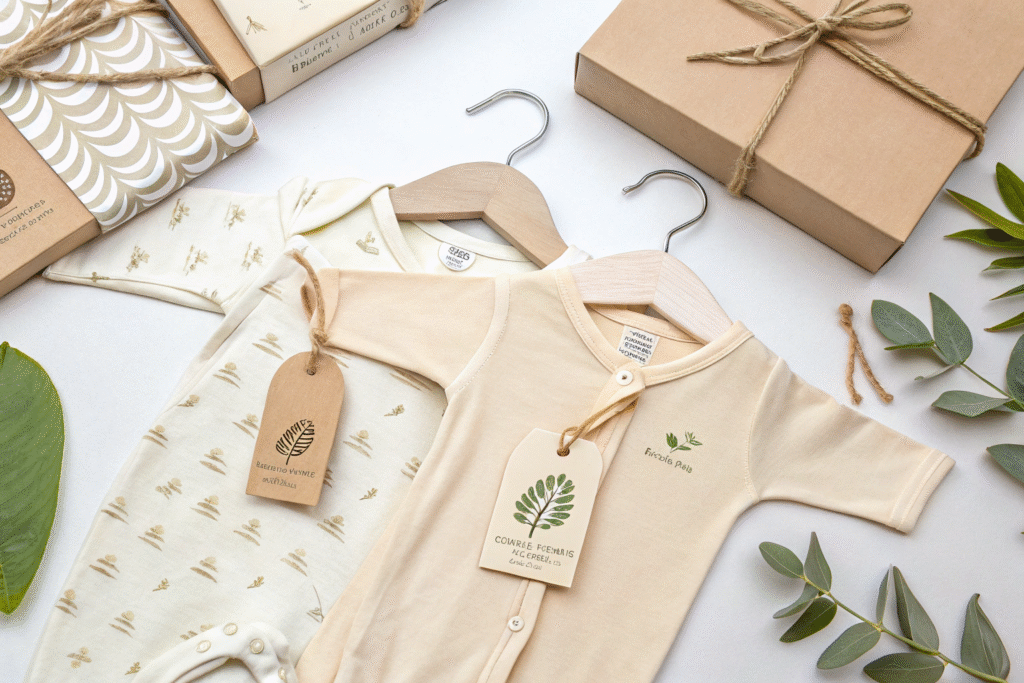
How does private label differ from white label?
White label usually refers to pre-made products that multiple retailers can buy and brand. Private label, by contrast, is tailored specifically for your store. We develop custom tech packs or adapt existing ones to match your needs.
As explained by BigCommerce, private label gives you more control over pricing and customer perception—essential for stores aiming to build lasting identity.
Why is private label growing in babywear?
Parents want trust, safety, and style. Instead of selling generic brands, retailers use private label babywear to offer soft organic fabrics, gentle dyes, and eco packaging—something that reflects their values.
Platforms like RangeMe show rising demand for baby-specific SKUs in organic, certified, and made-for-retail customization formats.
What Customization Options Are Available?
Customization is the heart of private labeling. Whether you’re launching an organic newborn essentials line or a playful toddler basics series, the ability to personalize your product is what sets you apart.
From fabric to packaging, everything in infant apparel can be customized—if you work with the right partner.
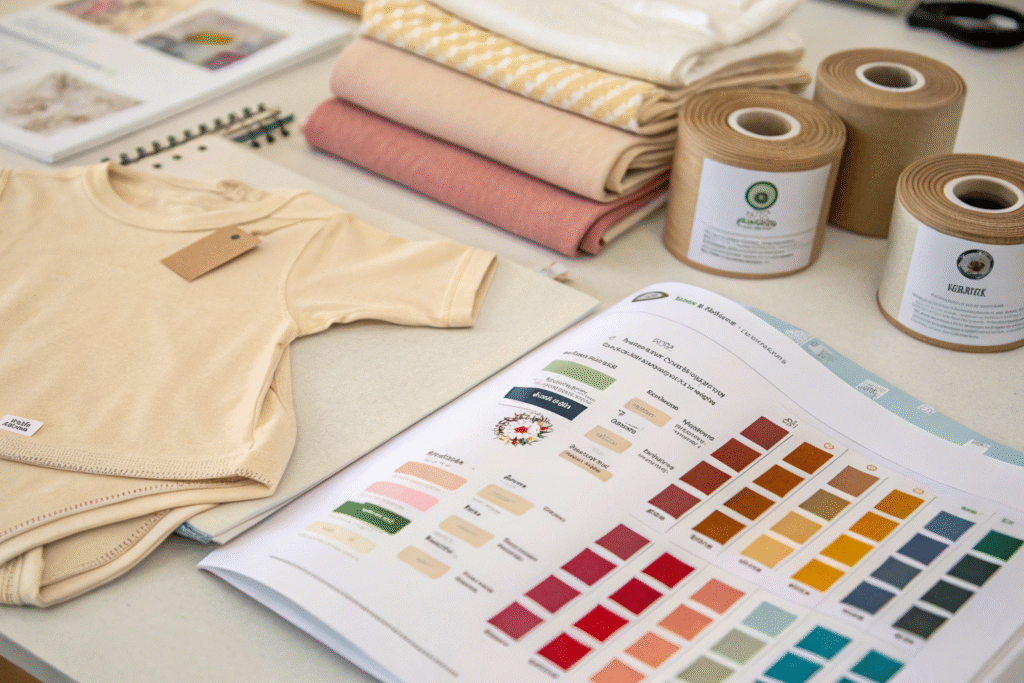
What garment elements can be personalized?
Almost everything: fabric type (like organic cotton, bamboo, or ribbed knits), colors, prints, labels, sizing specs, trims, and even snaps or zippers. We work with Pantone cards and digital prints to match your brand identity.
You can learn more about textile printing options at Spoonflower, which many designers use before scaling.
Can I customize packaging for retail display?
Yes. We support eco-friendly packaging, branded boxes, swing tags, barcode stickers, and ready-for-shelf polybags. Clients selling on Amazon FBA or in-store often request hangers, warning labels, and reusable pouches.
We also offer QR code printing on labels so you can direct customers to your brand story or website, adding digital depth to physical products.
How to Choose the Right Private Label Partner?
Private labeling is only as strong as the factory behind it. Many retailers have learned this the hard way—through missed deadlines, inconsistent sizing, or non-compliance fines.
The right babywear partner will offer experience, flexibility, certification support, and transparency from sample to shipment.
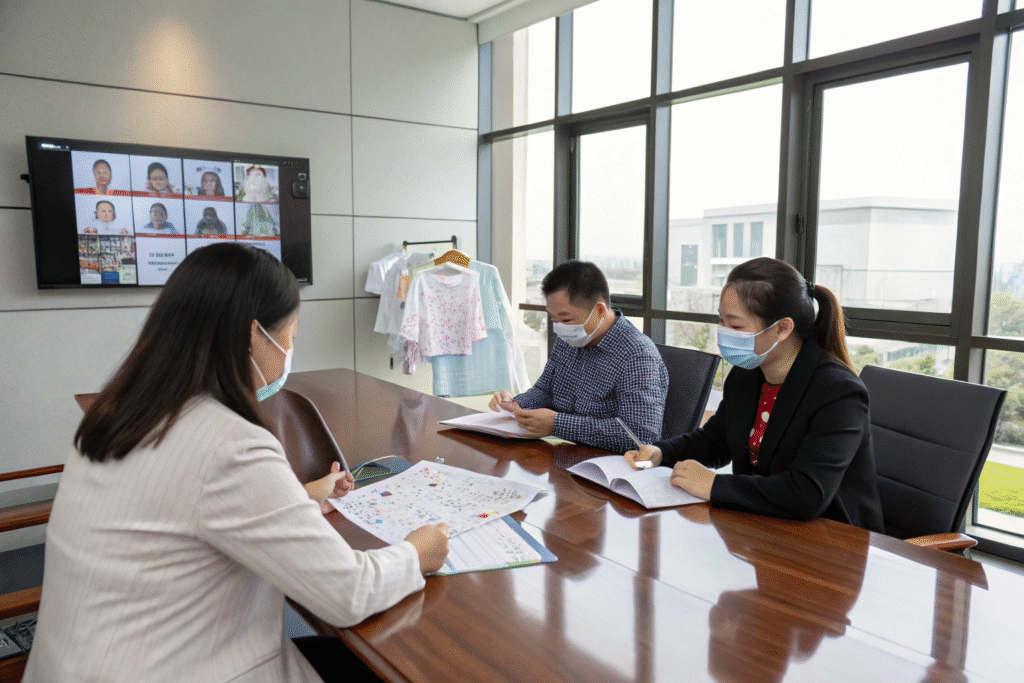
What factory traits should I look for?
Start with experience in infantwear, not just general apparel. Baby garments must meet stricter CPSIA or OEKO-TEX rules. Look for a partner with in-house QC teams, audit readiness, and strong sampling capability.
Also consider capacity: do they support low MOQ launches and scale-up later? We handle orders from 800pcs to 50,000pcs with consistent turnaround and detailed critical path tracking.
How important is communication in private label manufacturing?
Very. We assign each client a bilingual merchandiser + QC lead. Using tools like Notion or Google Sheets, we track tech pack versions, sample approvals, and timeline risks.
You should never wonder where your order stands. That’s why we also do mid-production video calls or WeChat updates for our U.S. clients every 10 days.
What Compliance and Safety Standards Matter Most?
Infant clothing involves strict safety laws—especially in the U.S., Canada, and Europe. Failing to meet these can result in recall, seizure, or brand damage. A serious private label partner must stay ahead of the rules.
Your factory must understand the safety landscape and provide full documentation for every shipment—especially for baby apparel.
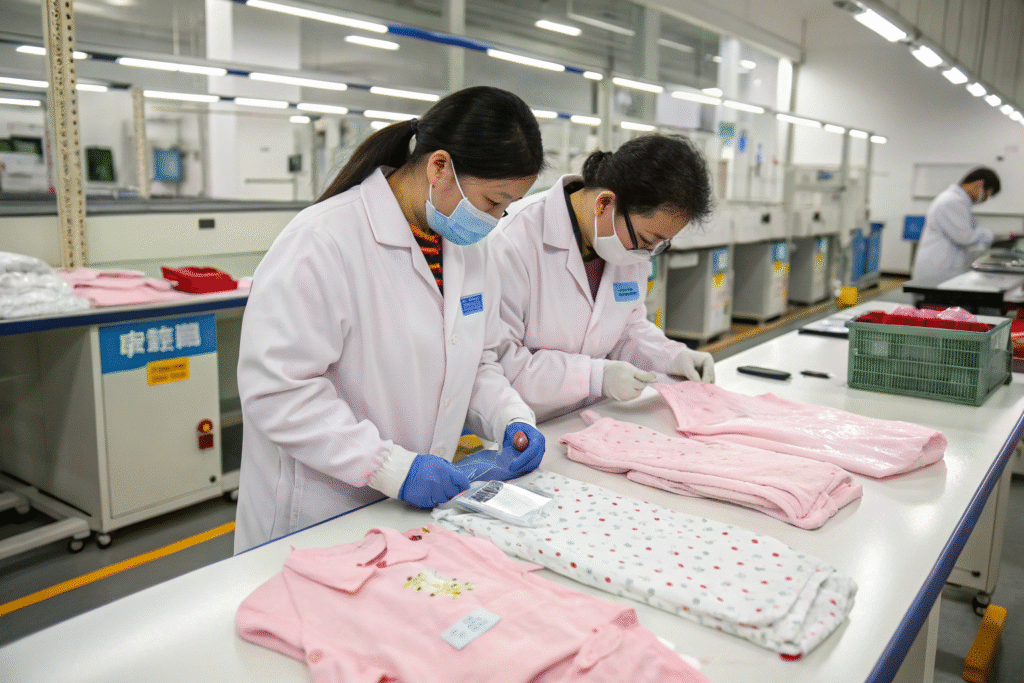
What are the main compliance requirements?
For U.S. markets, all garments for under-12s must meet CPSIA. This includes lead/phthalate limits, tracking labels, and small part testing.
For Europe, the REACH regulation and EN 14682 drawstring laws apply. Babywear must have secure trims and flame-safe materials.
We pre-test trims and snaps before bulk production, and only use certified materials sourced from OEKO-TEX partners.
How is testing documented and shared?
We work with SGS and TÜV Rheinland for independent lab testing. Clients receive digital PDFs with certification numbers and product batch codes.
Some buyers also request pre-shipment inspections. We offer live video walkthroughs or allow third-party visits. Documents are stored in shared drives for audit traceability.
Conclusion
Launching private label infant apparel isn’t just for giants like Carter’s—it’s a powerful way for small and medium retailers to offer something personal, trusted, and profitable. With the right manufacturing partner, you control the story, design, and margins—without the operational stress. We’ve helped dozens of retailers bring their babywear ideas to life. Ready to make your vision real? Let’s talk.
